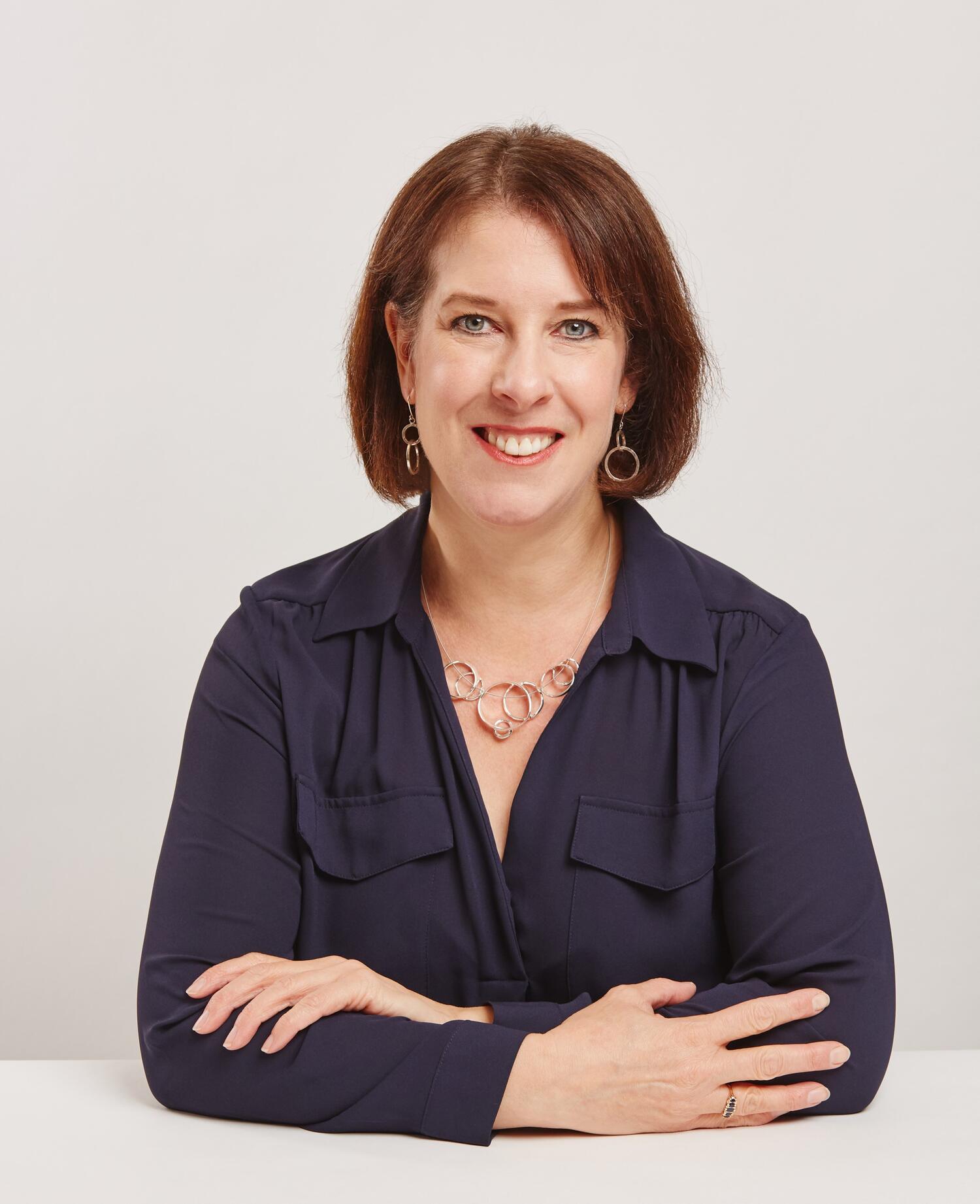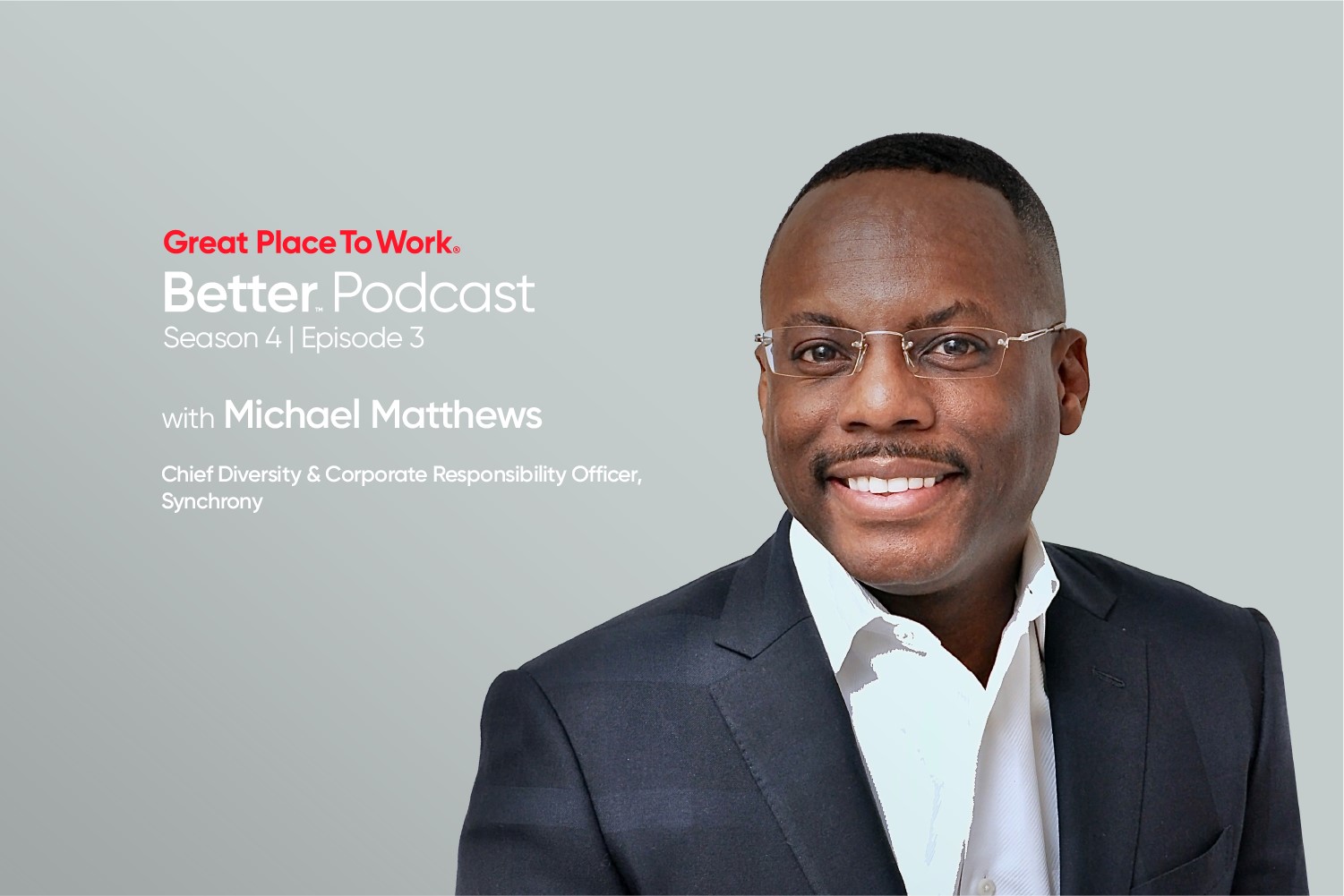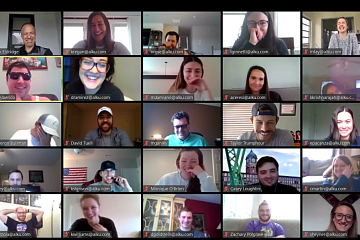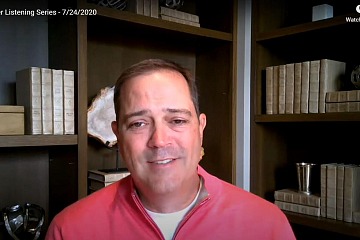
Benefits of Company Culture, Best Workplaces, Employee Experience, Recession, Remote & Hybrid Culture
Before COVID, very few of Credit Acceptance’s 2,100 employees worked remotely - and this was by design. The organization has enjoyed 48 years of success, including six consecutive years recognized as a Fortune 100 Best Company to Work For®, and they believed the collaboration and camaraderie that comes easily in an office environment contributed to this.
Credit Acceptance was so committed to their office environment that they made a significant capital investment into new, state-of-the-art facilities for their employees.
Ken Booth, CFO of Credit Acceptance, explained that while they periodically got requests from employees to work from home, they had been reluctant to make this change since this was a formula that worked for them.
The pandemic abruptly changed everything for them and for all of us. Credit Acceptance, like most companies, scrambled to figure out how to quickly pivot to keep their business operating. But unlike most companies, they decided early on that no matter what happened, they would not lay off any employees.
Layoffs hurt more than just the people who get laid off
Ken is a leader who understands the ripple effect of layoffs: “It doesn’t just affect the small number of people you lay off, it affects the whole company.”
The first few weeks were “very difficult,” Ken shared. “We had some employees who were without internet access. We told employees that if you are able to work from home, to ‘do the best you can’. And if they couldn’t work remotely, we were still going to pay them their salary.”
How is it working out four months into this new reality?
”We were all quite surprised,” said Ken. “While our business has experienced a small expected decline because of COVID, we have been much more successful than we anticipated.
“While we previously believed that working in an office environment was important to sustaining our performance, we can see now that we may have been wrong.
“Our culture and our people are a key differentiator and through all the challenges, this continues to be the foundation that supports our success.”
Ahmad Ramey, Market Area Manager, has been with Credit Acceptance for over 19 years. He shared that when the company announced that there would be no layoffs and that employees would continue to get paid their salaries, it took “the fear off the table.”
”It was a relief that we didn’t have to worry about financial security. We know so many people who have been laid off and not having to worry about this allowed us to continue focusing on how we could help and contribute to the company.”
When asked what impact this had on him, Ahmad said:
“When a company goes above and beyond to take care of you, you feel a huge commitment to go above and beyond to take care of the company.”
Clearly this strategy is paying off for Credit Acceptance, whose financial and operating performance continues to exceed expectations, even during such a challenging time.
Ahmad shared another unexpected benefit working for Credit Acceptance: “It’s where I met my wife, Marlena.”
Marlena has also been with Credit Acceptance for over 19 years and is currently a Senior Manager over a division responsible for Repossession and Abandonment.
Successfully managing a remote team
The sudden shift from an office environment to leading remotely has been a significant change.
During a recent webinar, Marlena talked about her approach to keeping her team connected and engaged. For that, she looked to what made Credit Acceptance’s company culture strong pre-COVID.
Build on your company culture strengths
“We’ve always had an environment that had a spirit of fun and we’ve had to find new ways of doing this.” Marlena maintains the sense of fun with a bit of imagination:
- Starting meetings with a virtual scavenger hunt giving points to the first person who finds different objects in their work-from-home lifestyle
- Creative reward strategies such as delivering meals to employees via food delivery services.
How do they know it’s working?
Ken explained that Credit Acceptance has always been a metrics-driven company. “As an organization, we track, share and discuss metrics as a way of operating.”
Ongoing listening to decode what works
While financial and operating metrics provide important insight on the performance of their organization, the other metrics they rely on is the insight they gather from employee surveys and other listening tools.
Ken points out that, “At Credit Acceptance, we have long believed that the people closest to the work have the best perspective. We start with a default mindset that when an employee raises a concern or a suggestion, you need to listen to them.”
Listening = caring
During this time of working remotely, listening to employees has been more important than ever. Ken explained that they have leaned into existing listening tools to maintain a close connection with the experience of their employees.
Credit Acceptance take employee listening very seriously:
- The company tracks employee ideas and suggestions on a spreadsheet that is reviewed during all-employee meetings and posted on their intranet
- ‘Red Tape Remover’ – a process where employees can email the CEO, Brett Roberts, with a suggestion, or through their regular employee pulse survey
- All feedback is reviewed by their executive and leadership teams
- Always closing the feedback loop. “We act on what we can and if we can’t - we explain why," Ken said. ‘Employees always know where things stand on their feedback.”
Whether you're a large company like Credit Acceptance or an SMB, the tools for success are the same. Transparent communication, leaning into your culture strengths and continuous listening will help you thrive through challenges.
This conversation was part of our webinars for customers. If you'd like to learn more about our culture management tool and access more content like this, reach out to us today.













